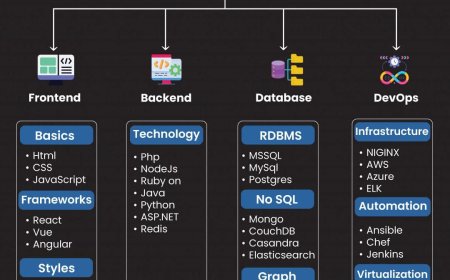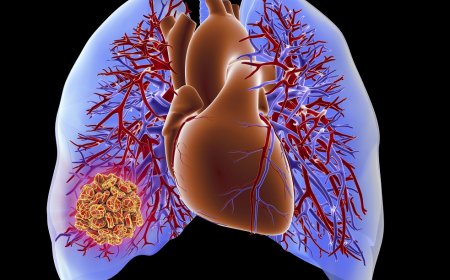Emergency Depression Help in San Antonio: What to Do When You Need Immediate Support
Need urgent help for depression? Discover how depression treatment San Antonio offers immediate crisis support and life-saving resources.
Depression can become overwhelming, and in some cases, urgent help is needed. When symptoms escalate to thoughts of self-harm or become debilitating, knowing where to turn for emergency assistance is critical. Fortunately, depression treatment San Antonio includes immediate resources, crisis response teams, and supportive services to ensure no one faces a mental health emergency alone. This blog serves as a comprehensive guide to getting rapid, compassionate help when it matters most.
Understanding a Mental Health Emergency
A mental health crisis can take many forms. Some common signs that immediate help is needed include:
-
Suicidal thoughts or actions
-
Intentional self-harm
-
Sudden withdrawal from reality (psychosis)
-
Intense feelings of hopelessness or despair
-
Dangerous or erratic behavior
-
Inability to care for oneself or function normally
These situations are urgent. If you or someone you know is exhibiting these signs, dont wait. Emergency intervention could be life-saving.
Steps to Take in a Crisis
-
Call Emergency Services (911) If someone is in immediate danger, call 911 and clearly state that it's a mental health emergency. Many cities, including San Antonio, have trained crisis response officers.
-
Contact a Local Mental Health Crisis Line Reach out to a local 24/7 crisis hotline for mental health emergencies. These hotlines are staffed by trained counselors who can de-escalate the situation and guide next steps.
-
Visit the Nearest Emergency Room Emergency rooms in San Antonio are equipped to handle psychiatric emergencies and can provide immediate assessment, stabilization, and referrals.
-
Access Mobile Crisis Outreach Teams Some mental health providers offer mobile teams that can come to your location to evaluate and support a person in crisis.
How San Antonio Supports Mental Health Emergencies
The availability of responsive, on-demand care is a major component of depression treatment San Antonio. Key emergency support options include:
-
Psychiatric emergency departments
-
Crisis stabilization units
-
24/7 suicide prevention hotlines
-
Walk-in mental health clinics
-
Crisis intervention training for law enforcement
These services work together to provide a safety net for individuals and families in need.
What Happens After Crisis Intervention?
Emergency treatment is just the beginning. After stabilization, ongoing care is essential to prevent relapse and promote recovery. Follow-up services may include:
-
Outpatient therapy or counseling
-
Medication management
-
Group therapy sessions
-
Case management support
A crisis is often a turning point, prompting individuals to seek the longer-term benefits of depression treatment San Antonio.
Helping a Loved One in Crisis
If someone you care about is showing signs of crisis:
-
Stay calm and listen without judgment
-
Encourage them to talk and validate their feelings
-
Remove potential means of self-harm if possible
-
Stay with them until help arrives or you reach a care center
-
Contact professional services if you're unsure how to help
Its not your job to fix everything, but your presence and action could save a life.
Barriers to Emergency Careand How to Overcome Them
Some people hesitate to seek help due to:
-
Fear of hospitalization
-
Stigma around mental illness
-
Lack of insurance
-
Not knowing where to go
To overcome these barriers:
-
Reframe emergency mental health care as essentialjust like physical health
-
Know that many facilities offer low-cost or sliding scale options
-
Familiarize yourself with local mental health hotlines and walk-in centers
Preventing Future Crises
Once immediate safety is established, focus turns to long-term strategies that reduce the risk of another crisis:
-
Regular therapy sessions
-
Creating a safety plan
-
Medication adherence
-
Developing strong support networks
-
Monitoring for relapse signs
Many individuals who access emergency services go on to thrive with consistent care from depression treatment San Antonio providers.
The Importance of Crisis Preparedness
Even if you or a loved one is not currently in crisis, being prepared can make a major difference. Heres how:
-
Save local hotline numbers in your phone
-
Identify nearby mental health clinics with emergency walk-in services
-
Keep a list of medications and providers handy
-
Educate yourself and your family on warning signs
Preparation reduces fear and uncertainty if a crisis does occur.
Conclusion
A mental health crisis is a frightening experiencebut it's not the end of the story. With swift action and the right support, recovery is absolutely possible. The robust emergency services offered through depression treatment San Antonio ensure that no one needs to face depression alone or without help. Whether you're seeking help for yourself or a loved one, knowing where to turn in a crisis can be the first step back to hope, healing, and stability.
FAQs
Q1: What should I do if someone is suicidal but refuses help? A1: Contact emergency services or a local mental health crisis team. Safety must be prioritized even if the person resists help initially.
Q2: Are there 24/7 services for depression emergencies in San Antonio? A2: Yes, San Antonio has 24/7 crisis lines, emergency rooms, and mobile outreach units specifically for mental health support.
Q3: Will calling 911 automatically lead to hospitalization? A3: Not always. Emergency responders assess the situation to determine the safest, most appropriate action, which may or may not include hospitalization.
Q4: Can I take someone to an emergency room without insurance? A4: Yes. Emergency services are required to treat patients regardless of insurance status. Many facilities also provide financial assistance.
Q5: What happens after a psychiatric emergency visit? A5: After stabilization, the patient is referred for outpatient care, therapy, or psychiatric follow-up to ensure long-term support.






































